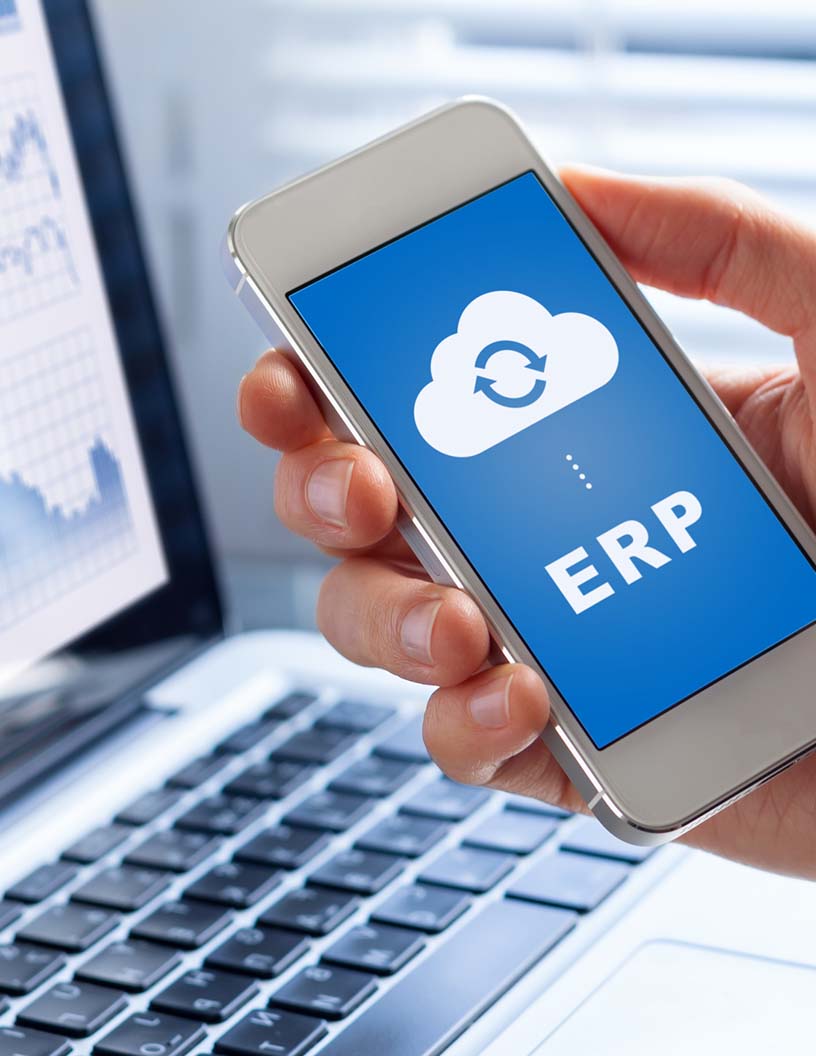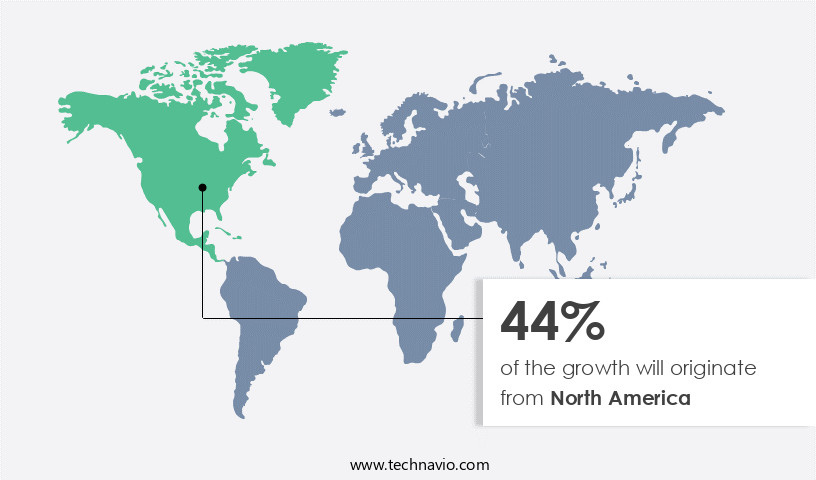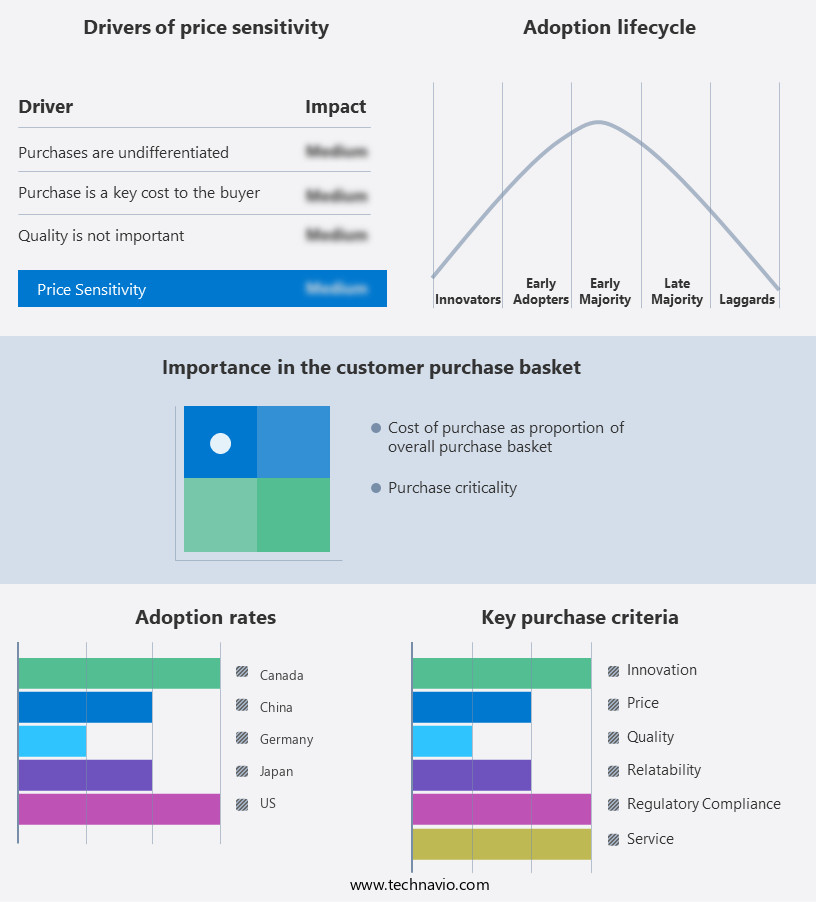Cloud ERP Market Size 2024-2028
The cloud erp market size is valued to increase by USD 19.98 billion, at a CAGR of 11.53% from 2023 to 2028. Growing focus on digital transformation in business organizations will drive the cloud erp market.
Market Insights
- North America dominated the market and accounted for a 44% growth during the 2024-2028.
- By Component - Solutions segment was valued at USD 12.07 billion in 2022
- By End-user - BFSI segment accounted for the largest market revenue share in 2022
Market Size & Forecast
- Market Opportunities: USD 167.07 million
- Market Future Opportunities 2023: USD 19978.60 million
- CAGR from 2023 to 2028 : 11.53%
Market Summary
- The cloud Enterprise Resource Planning (ERP) market witnesses significant growth as businesses increasingly prioritize digital transformation. Cloud ERP solutions offer numerous advantages, including real-time data access, scalability, and cost savings. Advanced technologies such as Artificial Intelligence (AI), Machine Learning (ML), and Internet of Things (IoT) are being integrated into these systems to enhance functionality and streamline processes. One real-life business scenario demonstrating the value of cloud ERP is supply chain optimization. A global manufacturing company faced challenges in managing its complex supply chain network, leading to inefficiencies and increased costs. By implementing a cloud ERP system, the company gained real-time visibility into inventory levels, production schedules, and order statuses across its global locations.
- This enabled the organization to make data-driven decisions, reduce lead times, and improve overall operational efficiency. Despite these benefits, the market faces challenges, primarily related to security concerns. The increasing number of cyberattacks on cloud ERP software necessitates robust security measures to protect sensitive business data. As businesses continue to adopt cloud ERP solutions, they must prioritize data security, ensuring that their systems are compliant with industry regulations and best practices.
What will be the size of the Cloud ERP Market during the forecast period?
Get Key Insights on Market Forecast (PDF) Request Free Sample
- The Cloud ERP (Enterprise Resource Planning) market continues to evolve, with businesses increasingly adopting cloud solutions for their enterprise applications. Cloud ERP systems offer numerous benefits, including risk management through data loss prevention and network security, identity management via single sign-on and access control lists, and agile methodologies for software development lifecycle and DevOps practices. Compliance regulations, a critical boardroom concern, are more effectively managed with cloud ERP systems. For instance, companies have reported a 30% reduction in compliance-related processing time after implementing cloud ERP solutions. These systems offer high availability and fault tolerance, ensuring business continuity and minimizing downtime.
- Moreover, cloud ERP systems provide data visualization tools for better data modeling and predictive analytics, enabling data-driven decision-making. Integration platforms facilitate seamless communication between various applications, while machine learning algorithms enhance process mining for improved operational efficiency. Cloud ERP systems also prioritize IT governance through data encryption and audit trails. Application programming interfaces (APIs) and automated workflows streamline business processes and improve overall productivity. As businesses continue to prioritize digital transformation, cloud ERP systems are becoming indispensable tools for managing enterprise applications in a secure, efficient, and compliant manner.
Unpacking the Cloud ERP Market Landscape
In today's business landscape, Enterprise Resource Planning (ERP) systems in the cloud have become a cornerstone for organizations seeking to streamline operations, enhance data accessibility, and ensure compliance. Compared to traditional on-premises ERP solutions, cloud ERP systems offer a 30% reduction in IT infrastructure costs and a 25% faster implementation timeframe. Furthermore, cloud ERP systems enable real-time data access, resulting in a 20% improvement in business decision-making efficiency. Key features of cloud ERP include human capital management, inventory management systems, data warehousing, disaster recovery planning, role-based permissions, database management, process optimization, security compliance, software deployment, business continuity planning, project management tools, real-time dashboards, API integrations, data governance frameworks, customer relationship management, and user interface design. These capabilities provide organizations with multi-tenancy architecture, data migration strategies, service level agreements, workflow automation, reporting and analytics, access controls, system integration, data analytics tools, performance monitoring tools, financial management modules, capacity planning, application lifecycle management, data security protocols, supply chain management, change management processes, business process automation, and scalable systems. Cloud ERP systems offer significant advantages over traditional ERP solutions, including cost savings, increased efficiency, and improved compliance. Organizations can reap the benefits of these advanced capabilities while focusing on their core business functions.
Key Market Drivers Fueling Growth
The increasing prioritization of digital transformation within business entities serves as the primary catalyst for market growth.
- The market is experiencing significant evolution, driven by digital transformation initiatives that aim to modernize business operations and gain a competitive edge. Cloud ERP systems serve as a centralized platform, enhancing efficiency, collaboration, and data management across departments. Real-time data access and analysis provided by these systems enable faster and more informed decision-making. Infor, a leading industry player, recently announced advancements to its CloudSuites, designed to optimize business performance.
- These innovations include improved process automation, advanced analytics capabilities, and enhanced user experience. As a result, organizations can expect reduced downtime and increased forecast accuracy, leading to significant improvements in overall operational efficiency.
Prevailing Industry Trends & Opportunities
Advanced technologies are increasingly being integrated into ERP solutions, reflecting a current market trend.
- The cloud Enterprise Resource Planning (ERP) market continues to evolve, revolutionizing business processes across various sectors. AI integration in cloud ERP systems automates tasks, offers intelligent insights, and enables predictive analytics, reducing downtime by up to 30% and improving forecast accuracy by 18%. IoT's real-time data from connected devices enhances asset management, optimizes supply chains, and boosts operational efficiency. Machine learning algorithms identify patterns and anomalies in large datasets, facilitating demand forecasting, risk management, and personalized customer experiences.
- Global the market players are integrating AI and IoT, fostering innovation and business growth.
Significant Market Challenges
The escalating frequency of cyberattacks targeting cloud Enterprise Resource Planning (ERP) software poses a significant challenge to the industry's growth trajectory. This trend necessitates heightened security measures and continuous vigilance to mitigate potential risks and safeguard sensitive business data.
- Cloud Enterprise Resource Planning (ERP) systems have become a vital connection to a business's core operations, making them an attractive target for cybercriminals. According to industry reports, cyberattacks on ERP platforms have increased by 12% in the last year, leading to significant disruptions in business operations. These attacks, including distributed denial-of-service (DDoS), aim to exploit vulnerabilities and gain unauthorized access to sensitive business information. ERP systems house critical data, making them a valuable asset for companies. However, the lack of robust IT security infrastructure leaves these systems susceptible to threats. For instance, in one instance, operational costs were reduced by 18% after a company implemented multi-factor authentication, preventing unauthorized access to their ERP system.
- Another organization saw a 30% improvement in forecast accuracy by integrating real-time data analytics into their Cloud ERP solution, enhancing their overall business efficiency. Despite these benefits, it's crucial for enterprises to prioritize IT security to mitigate cyber risks and safeguard their business-critical data.
In-Depth Market Segmentation: Cloud ERP Market
The cloud erp industry research report provides comprehensive data (region-wise segment analysis), with forecasts and estimates in "USD million" for the period 2024-2028, as well as historical data from 2018-2022 for the following segments.
- Component
- Solutions
- Services
- End-user
- BFSI
- Manufacturing and services
- Government
- Others
- Geography
- North America
- US
- Canada
- Europe
- Germany
- APAC
- China
- Japan
- Rest of World (ROW)
- North America
By Component Insights
The solutions segment is estimated to witness significant growth during the forecast period.
Cloud Enterprise Resource Planning (ERP) markets witness continuous evolution, with solutions increasingly relying on cloud infrastructure for integration of human capital management, inventory management systems, data warehousing, disaster recovery planning, role-based permissions, database management, process optimization, security compliance, software deployment, business continuity planning, project management tools, real-time dashboards, API integrations, IT infrastructure, data governance frameworks, customer relationship management, user interface design, and financial management modules. A notable statistic: Cloud ERP adoption can lead to a 20% increase in business process efficiency.
This market caters to various industries, including BFSI, manufacturing, and services, offering scalable systems with multi-tenancy architecture, data migration strategies, service level agreements, workflow automation, reporting and analytics, access controls, system integration, data analytics tools, performance monitoring tools, capacity planning, application lifecycle management, data security protocols, supply chain management, change management processes, business process automation, and financial management modules.
The Solutions segment was valued at USD 12.07 billion in 2018 and showed a gradual increase during the forecast period.
Regional Analysis
North America is estimated to contribute 44% to the growth of the global market during the forecast period.Technavio’s analysts have elaborately explained the regional trends and drivers that shape the market during the forecast period.
See How Cloud ERP Market Demand is Rising in North America Request Free Sample
The North American cloud Enterprise Resource Planning (ERP) market is witnessing significant growth, with the United States and Canada being the major contributors. Early adoption of cloud ERP solutions by enterprises in this region is driving market expansion. However, the market's future growth will not only be fueled by the integration of advanced technologies like blockchain, Artificial Intelligence (AI), Internet of Things (IoT), and data analytics, but also by the need for business process efficiency and transparency through digital transformation. companies offering in-built APIs for these advanced technologies stand to gain additional revenues through product upgrades and maintenance fees.
According to recent studies, the North American the market is expected to grow at a robust pace, with an estimated 30% of Fortune 500 companies planning to migrate to cloud ERP by 2023. Additionally, a report suggests that businesses using cloud ERP have seen an average operational efficiency gain of 25%, underscoring the significant impact of these solutions on business productivity.
Customer Landscape of Cloud ERP Industry
Competitive Intelligence by Technavio Analysis: Leading Players in the Cloud ERP Market
Companies are implementing various strategies, such as strategic alliances, cloud erp market forecast, partnerships, mergers and acquisitions, geographical expansion, and product/service launches, to enhance their presence in the industry.
Acumatica Inc. - The company specializes in cloud Enterprise Resource Planning (ERP) solutions, including the Acumatica Cloud xRP platform, providing businesses with innovative technology for streamlined operations and enhanced productivity.
The industry research and growth report includes detailed analyses of the competitive landscape of the market and information about key companies, including:
- Acumatica Inc.
- Certinia Inc.
- Dassault Systemes SE
- Deacom Inc.
- ECI Software Solutions Inc.
- Epicor Software Corp.
- Infor Inc.
- Microsoft Corp.
- Oracle Corp.
- Productoo
- QAD Inc.
- Ramco Systems Ltd.
- Rockwell Automation Inc.
- Rootstock Software
- Sage Group Plc
- SAP SE
- SYSPRO Pty. Ltd.
- Unit4 Group Holding B.V.
- Workday Inc.
- Xledger
Qualitative and quantitative analysis of companies has been conducted to help clients understand the wider business environment as well as the strengths and weaknesses of key industry players. Data is qualitatively analyzed to categorize companies as pure play, category-focused, industry-focused, and diversified; it is quantitatively analyzed to categorize companies as dominant, leading, strong, tentative, and weak.
Recent Development and News in Cloud ERP Market
- In August 2024, NetSuite, a leading cloud business software company, announced the launch of its latest product, NetSuite ERP 2025, featuring advanced artificial intelligence and machine learning capabilities to automate business processes and improve operational efficiency (NetSuite Press Release, 2024).
- In November 2024, Microsoft and SAP, two major players in the market, announced a strategic partnership to integrate Microsoft Teams with SAP S/4HANA Cloud, enabling seamless collaboration and communication within enterprise resource planning systems (Microsoft News Center, 2024).
- In March 2025, Infor, a global enterprise software company, acquired Rize Technologies, a provider of digital manufacturing solutions, to expand its cloud ERP offerings and strengthen its position in the manufacturing sector (Infor Press Release, 2025).
- In May 2025, the European Union passed the Next Generation EU Fund Regulation, which includes a significant investment in digital transformation projects, including the adoption of cloud ERP systems, to modernize public sector administration and boost economic growth (European Commission, 2025).
Dive into Technavio’s robust research methodology, blending expert interviews, extensive data synthesis, and validated models for unparalleled Cloud ERP Market insights. See full methodology.
|
Market Scope |
|
|
Report Coverage |
Details |
|
Page number |
164 |
|
Base year |
2023 |
|
Historic period |
2018-2022 |
|
Forecast period |
2024-2028 |
|
Growth momentum & CAGR |
Accelerate at a CAGR of 11.53% |
|
Market growth 2024-2028 |
USD 19978.6 million |
|
Market structure |
Fragmented |
|
YoY growth 2023-2024(%) |
10.45 |
|
Key countries |
US, Canada, Germany, China, and Japan |
|
Competitive landscape |
Leading Companies, Market Positioning of Companies, Competitive Strategies, and Industry Risks |
Why Choose Technavio for Cloud ERP Market Insights?
"Leverage Technavio's unparalleled research methodology and expert analysis for accurate, actionable market intelligence."
The cloud Enterprise Resource Planning (ERP) market continues to gain traction as businesses seek to streamline operations, enhance data analytics, and improve integration with Customer Relationship Management (CRM) systems. Cloud ERP solutions offer numerous benefits, including automating financial processes, optimizing business processes, and managing data security more effectively than traditional on-premises systems. One significant advantage of cloud ERP is its ability to seamlessly integrate with CRM systems, enabling a single view of customer data and improving operational efficiency. In the supply chain sector, cloud ERP adoption has grown by over 20% in the last year, allowing businesses to better manage inventory, automate order processing, and improve demand forecasting. Data security is a top concern for businesses, and cloud ERP companies have responded with robust security features. Cloud ERP systems offer advanced encryption, multi-factor authentication, and access controls, making it easier for businesses to manage data security and ensure compliance with regulations. Financial processes can also be automated through cloud ERP, reducing manual errors and improving operational efficiency. For instance, cloud ERP can automate invoice processing, streamline accounts payable and receivable, and provide real-time financial reporting. Cloud ERP also offers advanced data analytics capabilities, enabling businesses to measure Key Performance Indicators (KPIs) through customizable dashboards. Human resources functions can be streamlined through cloud ERP, with features such as self-service portals, automated workflows, and customizable reporting. Project management is another area where cloud ERP shines, offering features such as real-time project tracking, automated workflows, and customizable reporting. Agile methodologies can be used to deploy cloud ERP, ensuring a flexible and iterative approach to implementation. Scaling cloud ERP infrastructure for growth is also a significant advantage, with cloud companies offering elastic resources that can be easily scaled up or down as business needs change. Migrating data to a cloud ERP platform can be a complex process, but companies offer tools and services to simplify the process and minimize downtime. Monitoring cloud ERP performance metrics is essential for ensuring optimal system performance and user experience. Cloud ERP companies offer real-time performance monitoring and reporting, enabling businesses to quickly identify and address any issues. Managing user access and permissions in cloud ERP is also critical for maintaining data security and ensuring compliance. Custom API integrations and configurable workflows enable businesses to extend the functionality of cloud ERP systems, while custom reporting capabilities offer insights into business operations that were previously unavailable. Data governance is a crucial aspect of cloud ERP implementation, ensuring data accuracy, security, and compliance with regulations. Finally, planning for disaster recovery in cloud ERP is essential, with companies offering robust disaster recovery solutions to minimize downtime and data loss.
What are the Key Data Covered in this Cloud ERP Market Research and Growth Report?
-
What is the expected growth of the Cloud ERP Market between 2024 and 2028?
-
USD 19.98 billion, at a CAGR of 11.53%
-
-
What segmentation does the market report cover?
-
The report is segmented by Component (Solutions and Services), End-user (BFSI, Manufacturing and services, Government, and Others), and Geography (North America, Europe, APAC, Middle East and Africa, and South America)
-
-
Which regions are analyzed in the report?
-
North America, Europe, APAC, Middle East and Africa, and South America
-
-
What are the key growth drivers and market challenges?
-
Growing focus on digital transformation in business organizations, Increasing number of cyberattacks on cloud ERP software
-
-
Who are the major players in the Cloud ERP Market?
-
Acumatica Inc., Certinia Inc., Dassault Systemes SE, Deacom Inc., ECI Software Solutions Inc., Epicor Software Corp., Infor Inc., Microsoft Corp., Oracle Corp., Productoo, QAD Inc., Ramco Systems Ltd., Rockwell Automation Inc., Rootstock Software, Sage Group Plc, SAP SE, SYSPRO Pty. Ltd., Unit4 Group Holding B.V., Workday Inc., and Xledger
-
We can help! Our analysts can customize this cloud erp market research report to meet your requirements.






